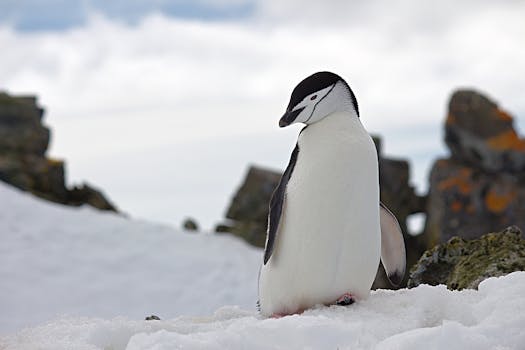
Introduction

The impact of climate change on global ecosystems is profound and far-reaching. As temperatures rise and weather patterns shift, the delicate balance of ecosystems around the world is being disrupted. This article delves into the various ways climate change is affecting biodiversity, ecosystems, and the services they provide.
Understanding Ecosystems and Biodiversity

Ecosystems are complex networks of living organisms, their physical environment, and the interactions between them. Biodiversity refers to the variety of life forms within a given ecosystem. Healthy ecosystems are essential for the survival of species, including humans, as they provide vital services such as clean air, water, and food.
The Effects of Climate Change on Ecosystems

Climate change is causing shifts in ecosystems across the globe. Temperature increases can lead to habitat loss, altered migration patterns, and changes in breeding seasons. For example, warmer temperatures are causing some species to migrate to cooler areas, disrupting established ecosystems and food chains.
Moreover, ocean ecosystems are particularly vulnerable. Rising sea temperatures and acidification threaten coral reefs, which are critical habitats for countless marine species. The loss of these reefs can lead to a decline in fish populations, affecting food security for millions of people.
Impact on Terrestrial Ecosystems

Forests, grasslands, and wetlands are also facing significant changes due to climate change. Increased frequency of wildfires, droughts, and floods can devastate these ecosystems. For instance, drought conditions can lead to tree mortality, reducing forest cover and altering the carbon storage capacity of these areas.
Furthermore, species that cannot adapt quickly to changing conditions face extinction. The loss of keystone species can have cascading effects throughout the ecosystem, leading to further declines in biodiversity.
Human Implications

The consequences of climate change on ecosystems have direct implications for human health and well-being. As ecosystems are disrupted, the services they provide, such as pollination, water purification, and disease regulation, are also compromised. This can lead to increased health risks and economic instability.
Additionally, the loss of biodiversity can affect food security, as agricultural systems rely on diverse species for resilience against pests and diseases.
Conclusion

The impact of climate change on global ecosystems is an urgent issue that requires immediate action. Protecting and restoring ecosystems is vital for maintaining biodiversity and ensuring that the services they provide continue for future generations. By understanding the intricate relationships within ecosystems, we can work towards more sustainable practices that mitigate the effects of climate change.



